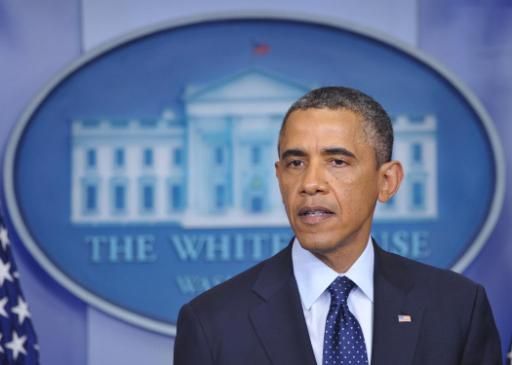
From Glenn Greenwald and Ewen MacAskill, Guardian: Barack Obama has ordered his senior national security and intelligence officials to draw up a list of potential overseas targets for US cyber-attacks , a top secret presidential directive obtained by the Guardian reveals.
The 18-page Presidential Policy Directive 20, issued in October last year but never published, states that what it calls Offensive Cyber Effects Operations (OCEO) "can offer unique and unconventional capabilities to advance US national objectives around the world with little or no warning to the adversary or target and with potential effects ranging from subtle to severely damaging".
It says the government will "identify potential targets of national importance where OCEO can offer a favorable balance of effectiveness and risk as compared with other instruments of national power".
The directive also contemplates the possible use of cyber actions inside the US, though it specifies that no such domestic operations can be conducted without the prior order of the president, except in cases of emergency.
The aim of the document was "to put in place tools and a framework to enable government to make decisions" on cyber actions, a senior administration official told the Guardian.
The administration published some declassified talking points from the directive in January 2013, but those did not mention the stepping up of America’s offensive capability and the drawing up of a target list. . . .
The directive’s publication comes as the president plans to confront his Chinese counterpart Xi Jinping at a summit in California on Friday over alleged Chinese attacks on western targets.
Even before the publication of the directive, Beijing had hit back against US criticism, with a senior official claiming to have "mountains of data" on American cyber-attacks he claimed were every bit as serious as those China was accused of having carried out against the US.
Presidential Policy Directive 20 defines OCEO as "operations and related programs or activities … conducted by or on behalf of the United States Government, in or through cyberspace, that are intended to enable or produce cyber effects outside United States government networks."
Asked about the stepping up of US offensive capabilities outlined in the directive, a senior administration official said: "Once humans develop the capacity to build boats, we build navies. Once you build airplanes, we build air forces."
The official added: "As a citizen, you expect your government to plan for scenarios. We’re very interested in having a discussion with our international partners about what the appropriate boundaries are."
The document includes caveats and precautions stating that all US cyber operations should conform to US and international law, and that any operations "reasonably likely to result in significant consequences require specific presidential approval".
The document says that agencies should consider the consequences of any cyber-action. They include the impact on intelligence-gathering; the risk of retaliation; the impact on the stability and security of the internet itself; the balance of political risks versus gains; and the establishment of unwelcome norms of international behaviour.
Among the possible "significant consequences" are loss of life; responsive actions against the US; damage to property; serious adverse foreign policy or economic impacts. . . .
The full classified directive repeatedly emphasizes that all cyber-operations must be conducted in accordance with US law and only as a complement to diplomatic and military options. But it also makes clear how both offensive and defensive cyber operations are central to US strategy. . . .
The directive provides that any cyber-operations "intended or likely to produce cyber effects within the United States" require the approval of the president, except in the case of an "emergency cyber action". When such an emergency arises, several departments, including the department of defense, are authorized to conduct such domestic operations without presidential approval.
Obama further authorized the use of offensive cyber attacks in foreign nations without their government’s consent whenever "US national interests and equities" require such nonconsensual attacks. It expressly reserves the right to use cyber tactics as part of what it calls "anticipatory action taken against imminent threats." (photo: Mandel Ngan/AFP)
Image: afp%206%207%2013%20obama_9.jpg
